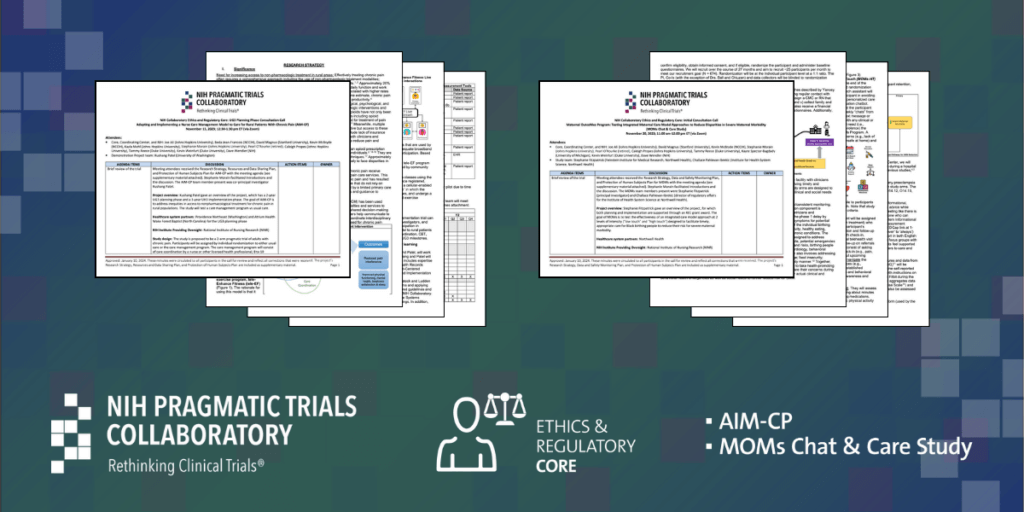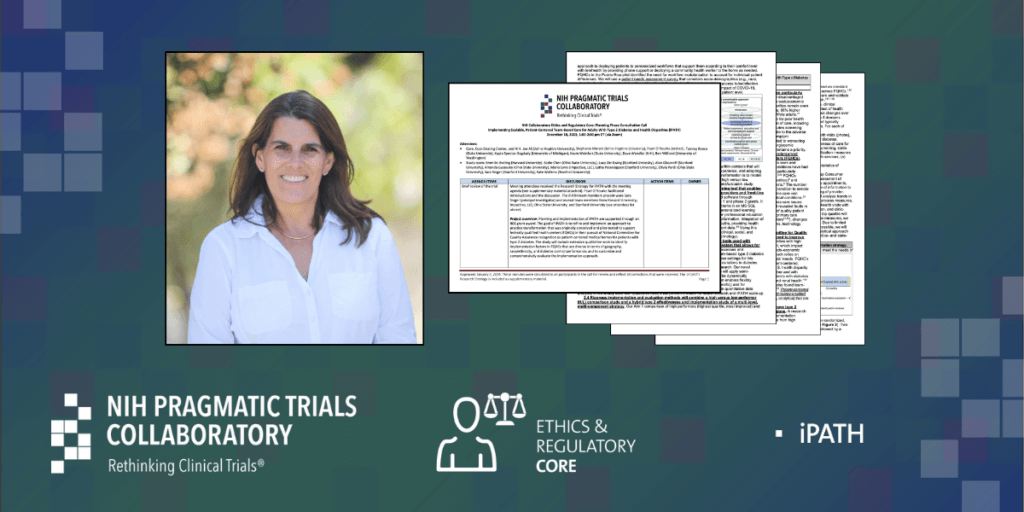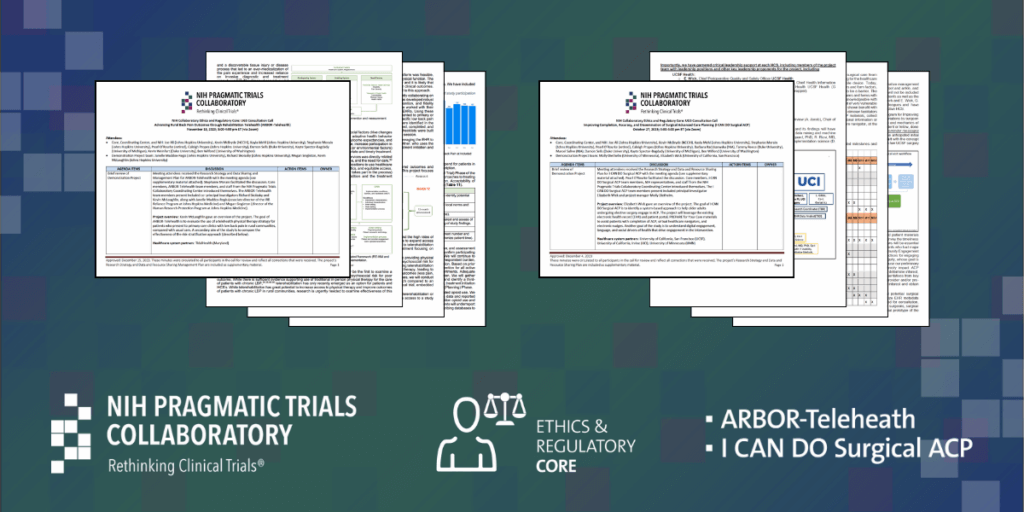
In a new report from the NIH Pragmatic Trials Collaboratory, a team of bioethicists and implementation scientists argue for a “presumptive default” that the results of pragmatic clinical trials should be incorporated into healthcare delivery processes. This responsibility arises from a key rationale for conducting pragmatic trials: that they can facilitate uptake of their results by relevant decision-makers.
The open-access article was published this week in Learning Health Systems.
Much of the literature on posttrial responsibilities offers guidance on what is owed to research participants and broader communities at the conclusion of traditional explanatory clinical trials. Similar guidance is lacking for pragmatic trials.
The NIH Collaboratory researchers, led by Stephanie Morain of Johns Hopkins University, explore the distinct considerations that shape posttrial responsibilities in pragmatic trials. These include the responsibilities of the healthcare systems in which these trials are embedded, and decisions about implementation of interventions that show meaningful benefit after their integration into usual care settings, as well as deimplementation of those that do not.
Fulfilling this responsibility will require prospective planning by researchers, healthcare delivery system leaders, institutional review boards, and sponsors, so as to ensure that the knowledge gained from [pragmatic trials] does, in fact, influence real-world practice.
The article was coauthored by members of the NIH Collaboratory’s Ethics and Regulatory Core and Implementation Science Core, including Pearl O’Rourke, formerly of Partners HealthCare; Joseph Ali and Jeremy Sugarman of Johns Hopkins University; Vasiliki Rahimzadeh of the Baylor College of Medicine; and Devon Check and Hayden Bosworth of Duke University.



 The NIH Pragmatic Trials Collaboratory this week published a new chapter in its Living Textbook of Pragmatic Clinical Trials. Part of the Living Textbook’s new Ethics and Regulatory collection, the chapter discusses the
The NIH Pragmatic Trials Collaboratory this week published a new chapter in its Living Textbook of Pragmatic Clinical Trials. Part of the Living Textbook’s new Ethics and Regulatory collection, the chapter discusses the  Ethics and regulatory onboarding documentation is now available for RAMP, one of the NIH Pragmatic Trials Collaboratory's newest pragmatic clinical trials. The documents include meeting minutes and supplementary materials summarizing recent discussions of ethics and regulatory issues associated with the study.
Ethics and regulatory onboarding documentation is now available for RAMP, one of the NIH Pragmatic Trials Collaboratory's newest pragmatic clinical trials. The documents include meeting minutes and supplementary materials summarizing recent discussions of ethics and regulatory issues associated with the study. Ethics and regulatory onboarding documentation for 2 of the NIH Pragmatic Trials Collaboratory's newest trials is now available. The documents include meeting minutes and supplementary materials summarizing recent discussions of ethics and regulatory issues associated with the AIM-CP trial and the MOMs Chat & Care Study.
Ethics and regulatory onboarding documentation for 2 of the NIH Pragmatic Trials Collaboratory's newest trials is now available. The documents include meeting minutes and supplementary materials summarizing recent discussions of ethics and regulatory issues associated with the AIM-CP trial and the MOMs Chat & Care Study. Ethics and regulatory onboarding documentation is now available for iPATH, one of the NIH Pragmatic Trials Collaboratory's newest pragmatic clinical trials. The documents include meeting minutes and supplementary materials summarizing recent discussions of ethics and regulatory issues associated with the study.
Ethics and regulatory onboarding documentation is now available for iPATH, one of the NIH Pragmatic Trials Collaboratory's newest pragmatic clinical trials. The documents include meeting minutes and supplementary materials summarizing recent discussions of ethics and regulatory issues associated with the study. Ethics and regulatory onboarding documentation for 2 of the NIH Pragmatic Trials Collaboratory's newest trials is now available. The documents include meeting minutes and supplementary materials summarizing recent discussions of ethics and regulatory issues associated with the ARBOR-Telehealth and I CAN DO Surgical ACP studies.
Ethics and regulatory onboarding documentation for 2 of the NIH Pragmatic Trials Collaboratory's newest trials is now available. The documents include meeting minutes and supplementary materials summarizing recent discussions of ethics and regulatory issues associated with the ARBOR-Telehealth and I CAN DO Surgical ACP studies.







